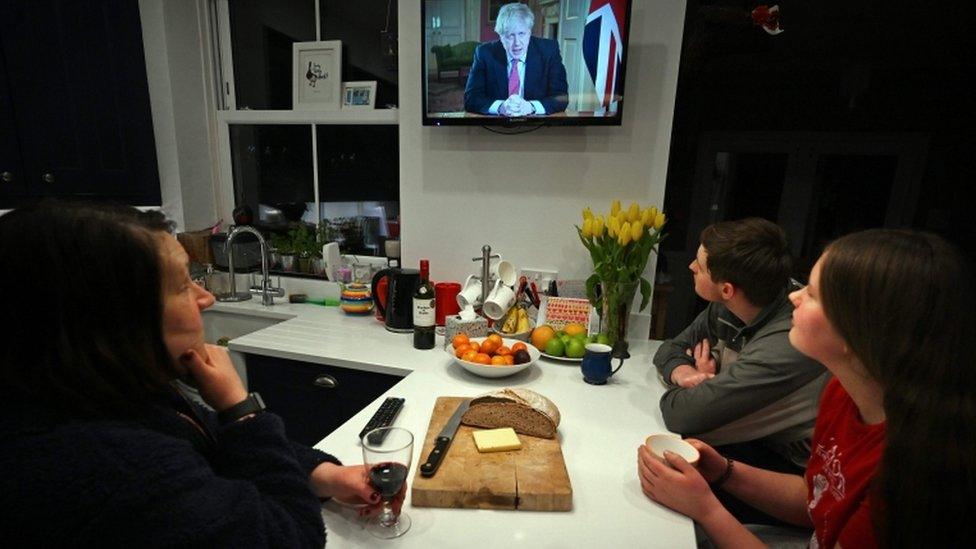Covid: UK shines a light as it remembers Covid victims
- Published
Lights shine across the UK on lockdown anniversary as a 'beacon of remembrance'
Parts of the UK's skyline have been lit up in remembrance of those who have lost their lives in the pandemic.
One year on from the start of the first lockdown, candles have been lit on doorsteps around the country and major landmarks illuminated in yellow.
Prime Minister Boris Johnson said the country had been through a year-long "epic of endurance and privation".
But "step by step, jab by jab", the nation was on the path to "reclaiming our freedoms", he told a news briefing.
Speaking a year after tough Covid restrictions were introduced in March 2020, Mr Johnson thanked people for their "courage, discipline and patience".
Earlier a minute's silence was held with parliaments across the UK pausing.
Some of the country's most famous landmarks including the London Eye, Wembley Stadium and Cardiff Castle were lit up in yellow after dark, while people shone lights from their doorsteps to signify a "beacon of remembrance" at 20:00 GMT.
Other notable buildings taking part include Cardiff Castle and Belfast City Hall, while churches and cathedrals tolled bells, lit thousands of candles and offered prayers.
Mr Johnson told a Downing Street briefing that "at the right moment" a permanent memorial to those who had died from coronavirus would be built, and that the whole period would be commemorated.
He also praised the heroes of the past year, including NHS and social care staff, shop and transport workers, the police and armed forces.
It comes as a further 112 deaths were reported within 28 days of a positive test, taking the total by this measure to 126,284, while a further 5,379 people tested positive for Covid, according to the latest government data, external.
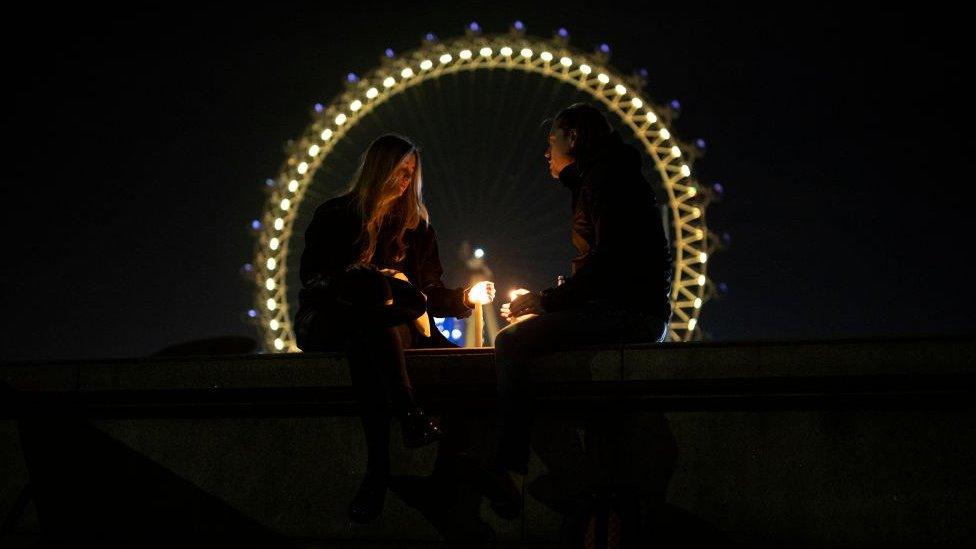
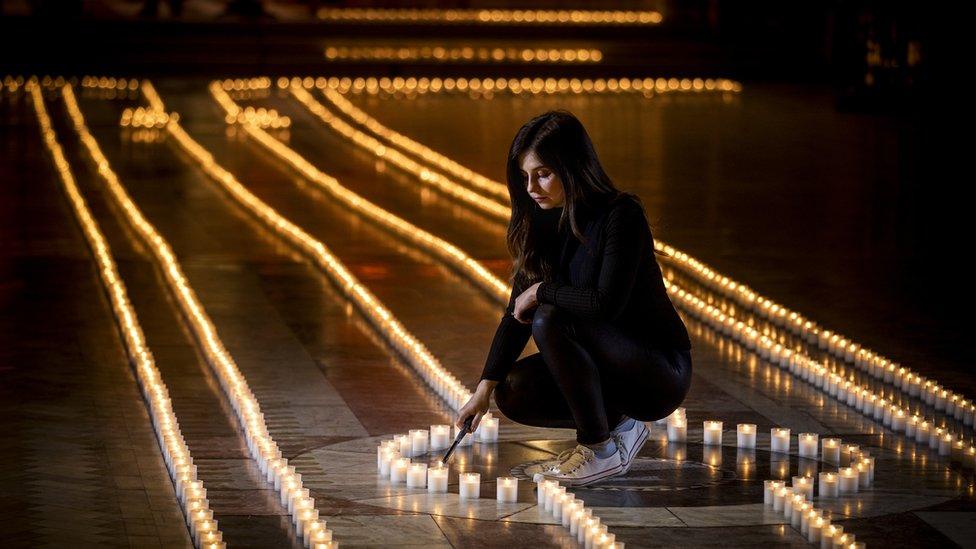
Holly Wilson, whose grandmother Ada Wilson passed away during the pandemic, lights a candle in Belfast Cathedral
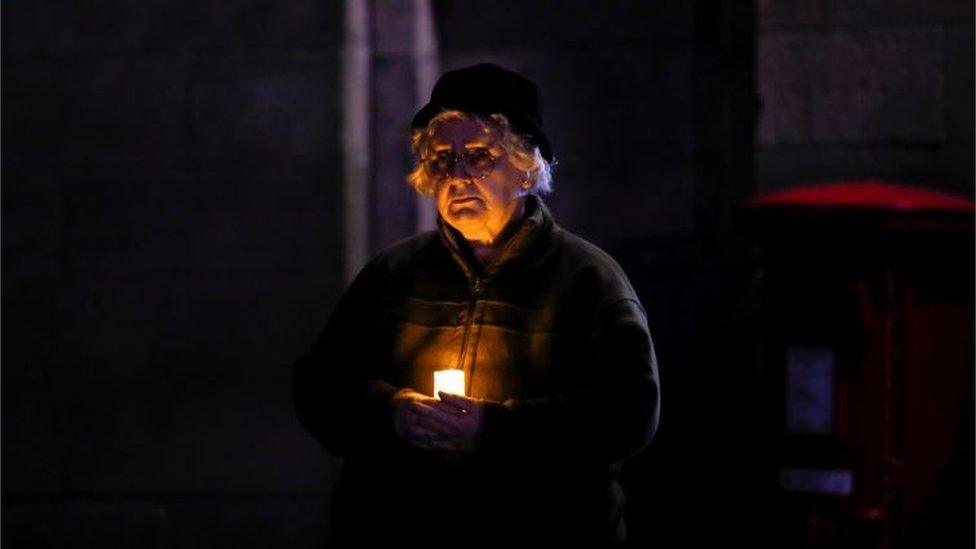
A woman remembers outside Lichfield Cathedral
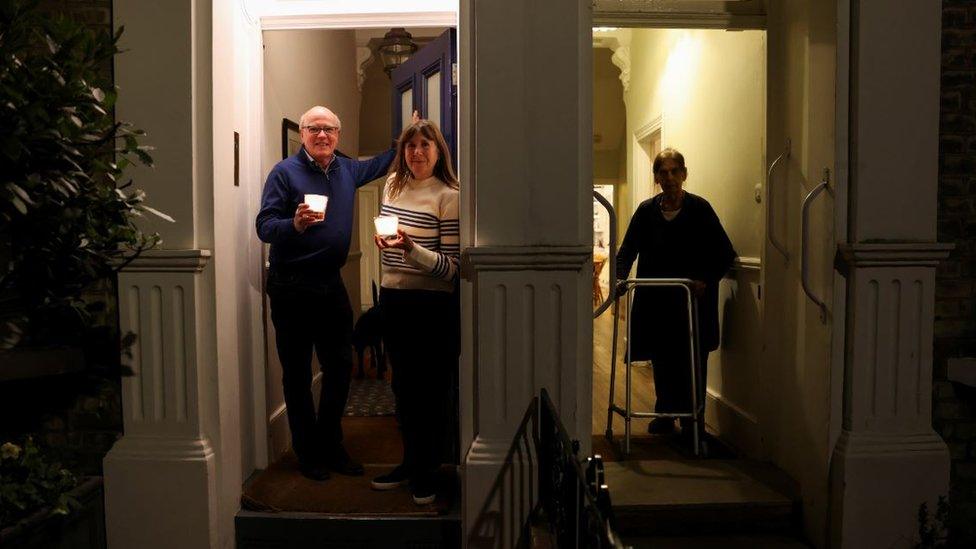
Neighbours light doorstep candles in Fulham, west London
The prime minister said the pandemic would be something he would remember for the rest of his life and described it as a "deeply difficult and distressing period" in history.
"For month after month, our collective fight against coronavirus was like fighting in the dark against a callous and invisible enemy - until science helped us to turn the lights on and gain the upper hand," he said.
Mr Johnson said the government was on track to meet its target of offering a first dose of vaccine to every adult by the end of July.
But he warned the country must be "very wary" of a potential third wave, saying there were "distinct signs" of one in Europe.
The prime minister said he hoped to be able to say more on travelling abroad from England on 5 April - a week earlier than a taskforce into the issue had been scheduled to report back.
England's chief medical officer Prof Chris Whitty warned there would be "bumps and twists on the road", possibly including the emergence of more new variants.
However, he said a "wall of vaccinated people" would significantly reduce the ratio between the number of cases and the resulting death toll.
As of Monday, more than 28.3 million people have received a first vaccine dose, with more than 2.3 million having had a second shot.
Deaths in the UK have fallen below the five-year average for the first time since the summer, with experts putting the drop down to the end of the winter wave of Covid deaths, lockdown and the vaccine rollout.


The vaccination programme is going well, but once again we are being reminded of the threat of a third wave.
Both the prime ministers and his senior advisers made reference to it.
With restrictions lifting, cases are likely to go up - although there is hope the change in seasons will help limit those rises.
Over half of people are vaccinated, but that still leaves many millions susceptible.
Some will be in the vulnerable groups - either because they have chosen not to take up the vaccine or because it has not worked.
That means people will still die just as they do from flu each year.
In a bad winter, there can be more than 20,000 flu deaths.
Modelling suggests that with the vaccine rollout and a careful lifting of restrictions there could be 30,000 Covid deaths by summer 2022.
But the government's advisers made clear there really is no other option, saying there is "close to zero chance" of zero Covid for a virus that spreads so easily, often undetected because so many do not even develop symptoms.
The challenge now is managing that risk.

Asked what he wished he had done differently over the past year, Mr Johnson said the "biggest false assumption" during the early part of the pandemic was over asymptomatic transmission, which led to "real problems that we then had to work very, very hard to make up the ground".
He added that no "previous government" had envisioned such a novel disease, while chief scientific adviser Sir Patrick Vallance said having adequate testing at the beginning of the pandemic would have made a "big difference".

Timeline: How did the UK lock down?
16 March 2020: The public are told to avoid non-essential travel and social contact and to work from home where possible
18 March: Schools are told to close from 20 March until further notice, except for the children of keyworkers and vulnerable pupils
20 March: Restaurants, cafes and pubs are told to close
23 March: The prime minister announces the first national lockdown, telling people they will only be allowed to leave their homes for limited reasons. Non-essential shops are told to close

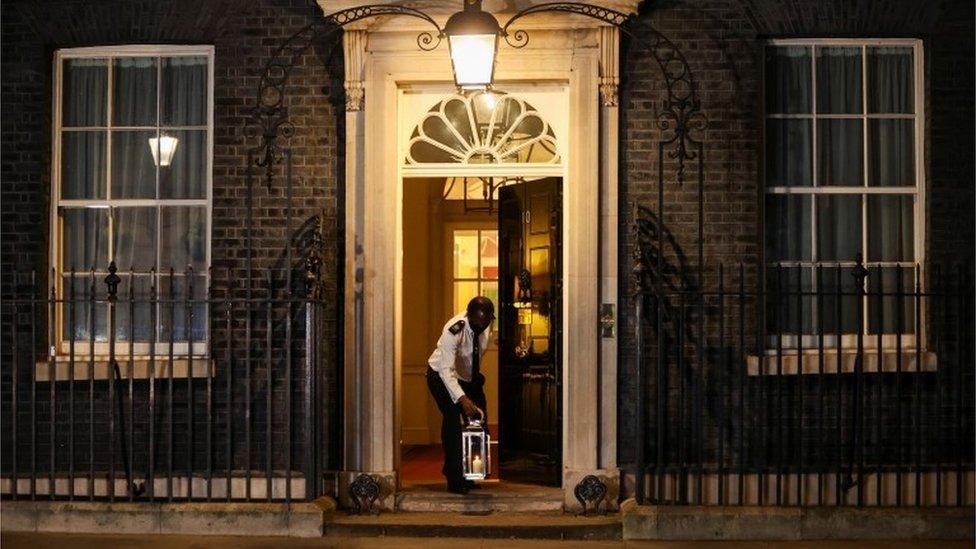
A candle is placed on the doorstep of Downing Street
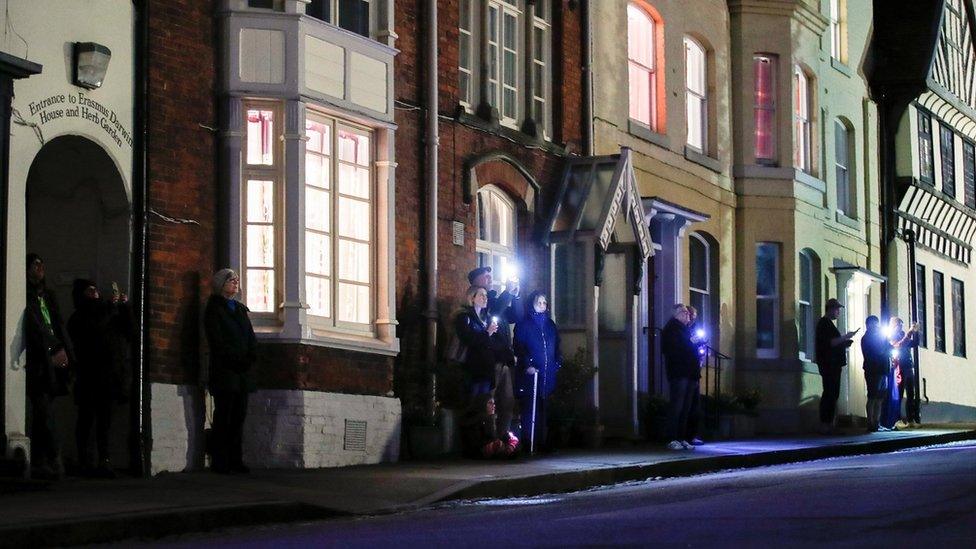
People light up their mobile phones while they stand outside in Lichfield
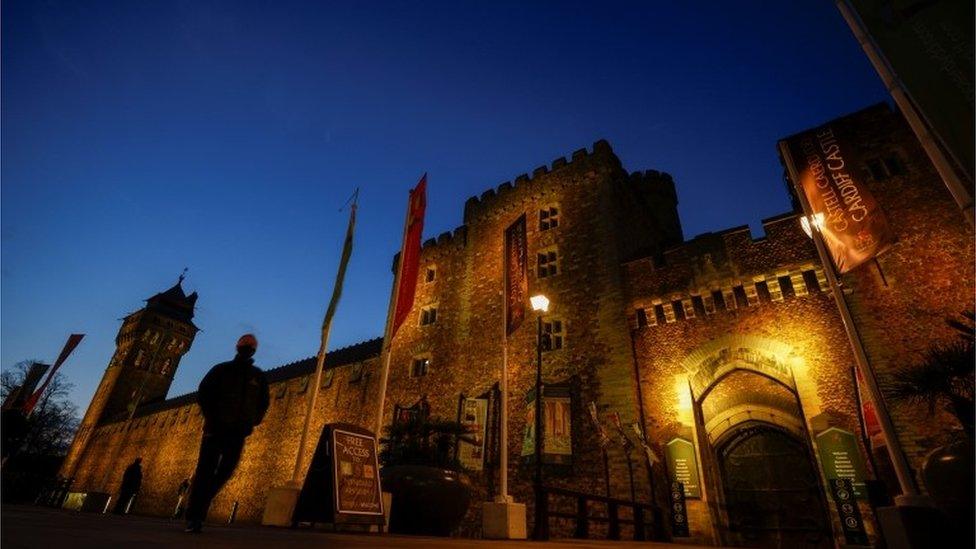
Cardiff Castle turned yellow after dark
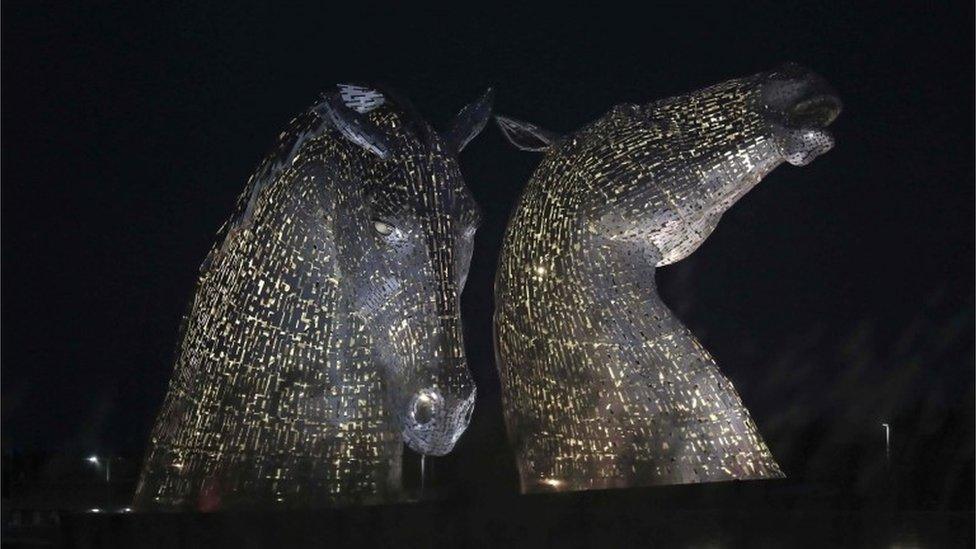
In Falkirk, the Kelpies were illuminated with yellow lights
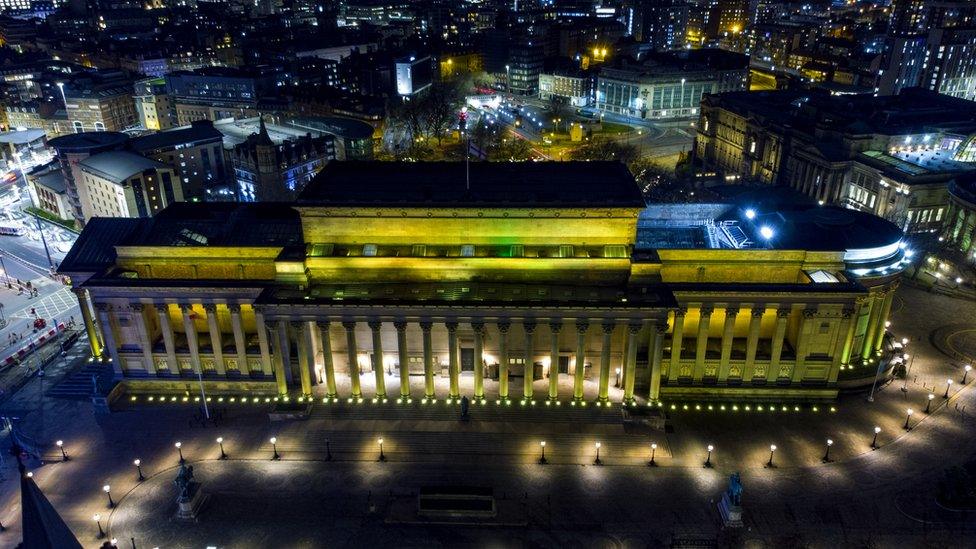
St George's Hall in Liverpool was lit up yellow
Earlier, the Queen marked the milestone by sending a bouquet of flowers to St Bartholomew's Hospital in London, where the Duke of Edinburgh recently had surgery for a pre-existing heart condition.
A message along with the flowers read: "As we look forward to a brighter future together, today we pause to reflect on the grief and loss that continues to be felt by so many people and families, and pay tribute to the immeasurable service of those who have supported us all over the last year."
Scotland's First Minister Nicola Sturgeon paid tribute to health workers, telling Holyrood the nation had been reminded "just how much we owe to their dedication, expertise and compassion".
First Minister Mark Drakeford praised the Welsh public for uniting "in the darkest of times".
Northern Ireland's First Minister Arlene Foster said it had probably been the "toughest year in living memory", while Deputy First Minister Michelle O'Neill said it had been a "huge challenge".
Doctors, nurses and teachers, as well as more than 50 MPs and peers, have written to the prime minister as part of a cross-party campaign asking for a Covid Memorial Day - paying tribute to the efforts of frontline workers during the pandemic.
They are asking for a minute's silence every year on 23 March to remember the lives lost.

PATIENT ZERO: Where do disease outbreaks begin and why do they happen?
OUCH - THE PODCAST: The brutal honesty of parenting during a pandemic

- Published13 March 2021
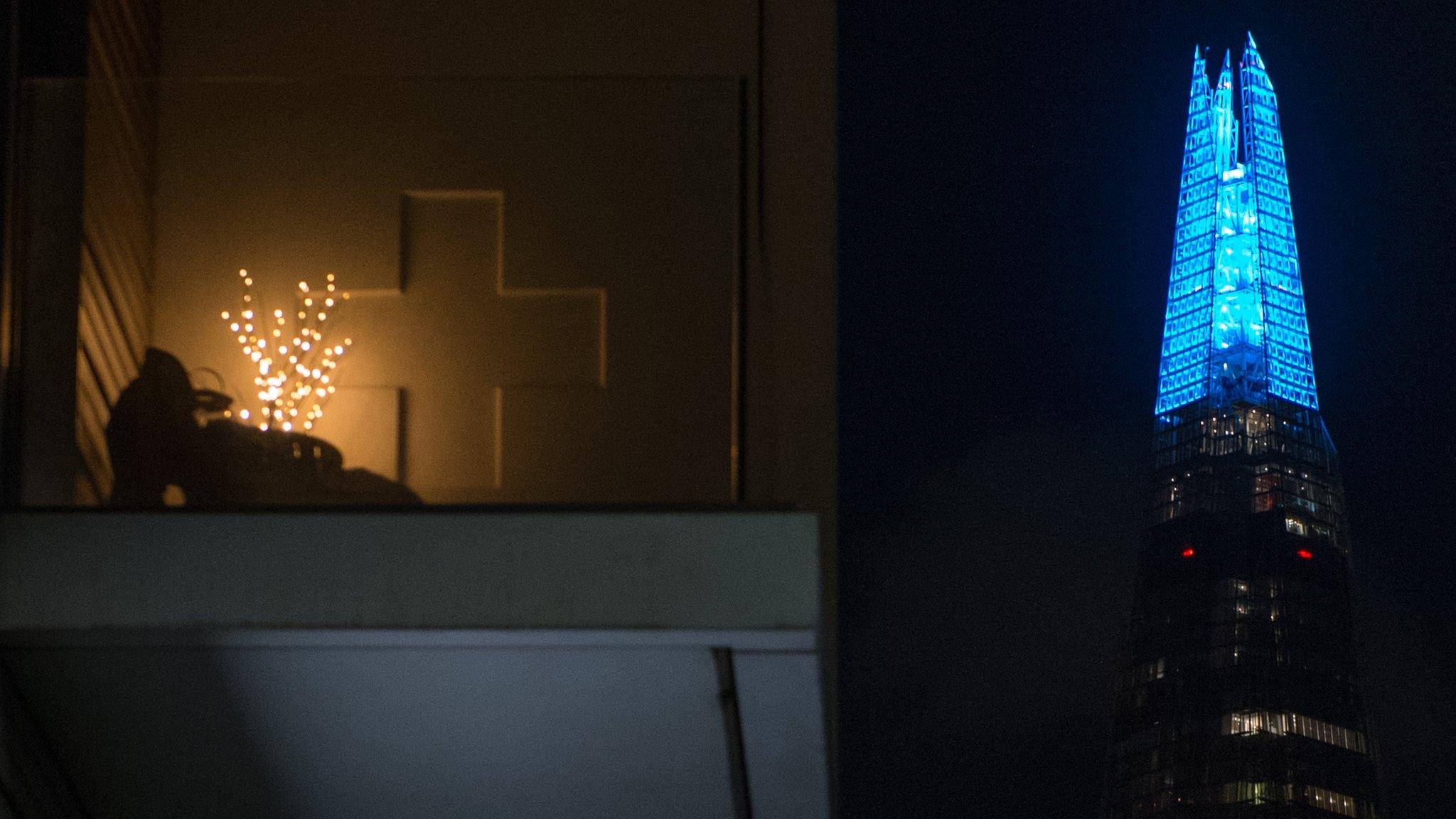
- Published24 March 2020
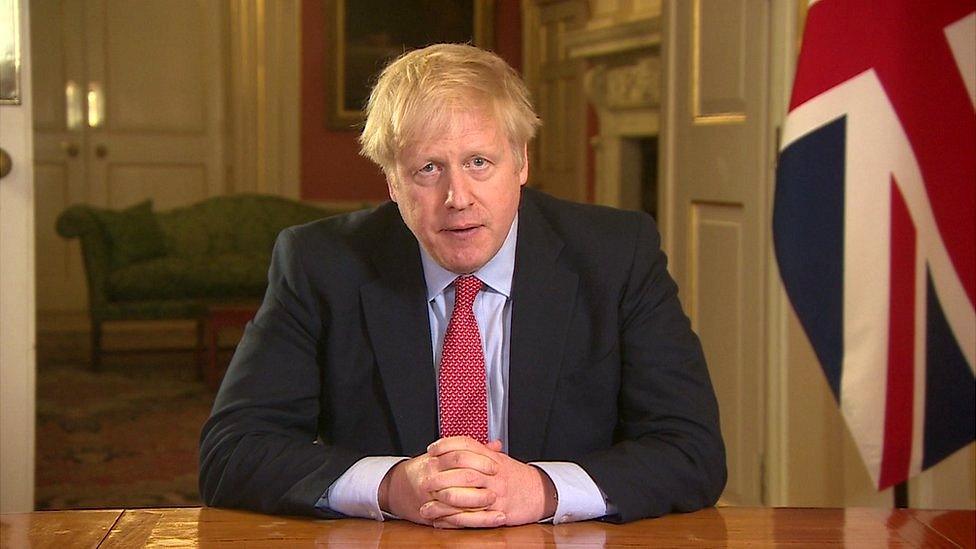
- Published23 March 2020
